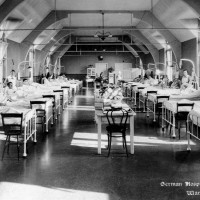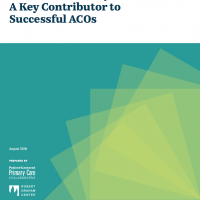Safety Differently – Why Do Things Go Right?
We should not just try to stop things from going wrong. Instead, we need to understand why most things go right, and then ensure that as much as possible indeed goes right. So argues Sidney Dekker in his blog Safety Differently The number of the things that go wrong is tiny. Their are a small number of things are the heroic, unexpected surprises (a Hudson River landing, for instance) that fall far outside what people would normally experience or have to deal with. In between, the huge bulbous middle, sits the quotidian or daily creation of success. This is where good outcomes are made,...
Read MoreHow to increase the number of hospital admissions
A 2014 systematic review by Tessa van Loenen and her team investigated which characteristics of primary care organization influence avoidable hospitalization for chronic Ambulatory Care Sensitive Conditions. Organizational aspects of primary care related to avoidable hospitalization: a systematic review. van Loenen T, van den Berg MJ, Westert GP, Faber MJ https://academic.oup.com/fampra/article/31/5/502/539081 The conclusion? Access to primary care and long term relationships. Available evidence suggests that strong primary care in terms of adequate primary care physician supply and...
Read MoreThe Shared Principles of Primary Care
The Shared Principles describe seven important attributes of advanced primary care. They are designed to help move the United States toward a future of health care that is person-centered, team based, and aligned with the community. Realizing this ideal future of primary care requires a common vision among all stakeholders, with the goal of achieving better health, better care, and lower costs. The process to develop the Shared Principles was co-led by Family Medicine for America’s Health (FMAHealth) and the Patient Centered Primary Care Collaborative in collaboration with individuals...
Read MorePCPCC Annual Evidence Report 2018
What is the role, if any,of advanced primary care models like the PCMH in the success or failure of ACOs? In the first-ever study of its kind, the Patient-Centered Primary Care Collaborative’s (PCPCC) 2018 Evidence Report examines the interaction between the Patient-Centered Medical Homes (PCMHs) and the Accountable Care Organization (ACOs) through both qualitative and quantitative methods, with the aim of answering the question above. https://www.pcpcc.org/resource/evidence2018 The literature review found that these six domains were important to the success of an ACO: 1. Leadership and...
Read MorePCMHs thrive with use of pop health technology
By utilizing a patient-centered, physician-led model of care, Blue Cross Blue Shield (BCBS) of Michigan has lowered recidivism and healthcare costs. In 2017, the PCMH model practices lowered emergency department visits by 19% for adults and 15% for children. The care model also lowered the rate of primary care sensitive emergency department visits by 23% for adults and 20% for children. Ambulatory care sensitive inpatient stays for adults were lowered by 25% From Managed Health Care Executive...
Read MoreImplementation of PCMH improves outcomes and costs
Implementation of PCMH in Adult Primary Care Practices improves patient centred outcomes and costs https://t.co/7Ow4l0R3TR <phttps://twitter.com/tlembke/status/873872465302302721
Read More


Recent Comments